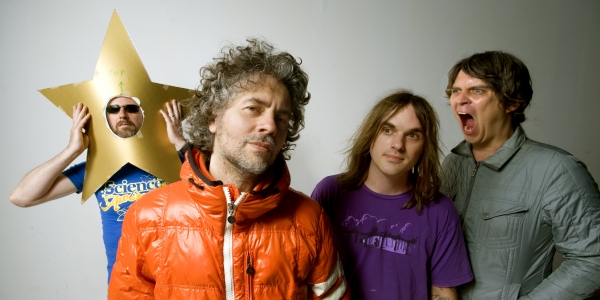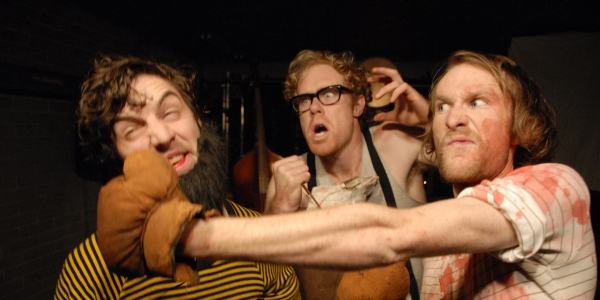“We’ve all grown up now with so many objects, these little keepsakes,” Wayne states from the bed of his Oklahoma residence. “For me, it’s stopped being all that interesting to collect things. I like this idea that this art, these things that we make, they’re not going to be here forever. Even the idea that we’re making them, that we’re making them so limited in such a strange time and place, that it’s a case of if you want the experience, you have to go seek it out,” he explains of the candy-encased distribution method. “You can’t just read about it later, you can’t keep it. It has to happen to you now, or it doesn’t happen. It’s like a hit of ecstasy – it’s not gonna wait a year, it won’t work. I like this idea that you have to say, ‘We’re in this.” I think it’s funny. When we first started doing the skulls, we were thinking about doing them in this plastic that you had to break into to actually get the music out. But then we started thinking that people probably wouldn’t break it, they’d just download the music and keep this thing forever. But we’re encouraging people to have it, to destroy it, and then move on. I know some people that have a lot of money, it wouldn’t matter to them. They can buy something for two-hundred dollars and break it. Some people can’t afford it, but that’s cool. I’m not here to judge what’s within your price range, I just make stuff and if some of the stuff isn’t for you, then whatever. But I like this idea that this isn’t collectible, you can eat it or it will disappear little by little. There are other experiences you can have other than just owning it,” Wayne muses. “And part of it is that we just wanted to make some fucking candy.”
As well as exploring and conquering new musical territories, The Flaming Lips have established themselves as one of the most entertaining live bands on the planet, with their live show becoming that of legend. This distinction owes a great deal to a classic catalogue of tracks, such as the sublime Do You Realize??? “Well when you say we have this ‘classic catalogue’, I mean, thank you,” Wayne states with humility. “But I don’t think about it that much. At some point you have to say that if some people think that these songs are classic, well that’s great. We just go with the flow. So at some point we would just accept that when we play, there are probably twelve songs that the audience knows we’re gonna play – that’s the reason we have an audience, because we do these songs and we’re known for these songs. But I think part of what the audience wants is for us to do our thing, do whatever we want. We can play songs that could be twenty years old, and some of it could be two weeks old, because that’s what we’re about. I don’t think we really struggle with it. I mean gosh, that there’s something like ten songs that we can play and everybody is just gonna fucking love, that’s amazing. It’s not just going to be sound and visual, it’s going into your memory and triggering nostalgia. All these things are bigger than music. People talk about nostalgia like it’s a bad thing – that’s fucking crazy,”
With a still-insatiable appetite for creation, does Wayne foresee a time when music won’t be such a motivating factor? “For me, we may be boring, but I don’t think the scope of music and the idea of creation is boring. Those are never boring. I know sometimes we do things that are boring, but it’s not anybody’s fault but our own. I’m almost always hearing bands and going, “Fuck, that’s cool!” Or Steven [Drozd, guitarist] will play something and I’ll go, ‘Fuck, that’s cool!’ It wipes my brain clean again to think ‘Woah, I didn’t know that was possible.’ It’s about listening. It’s not about making music, it really is about listening.”

